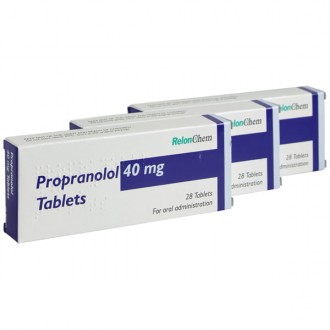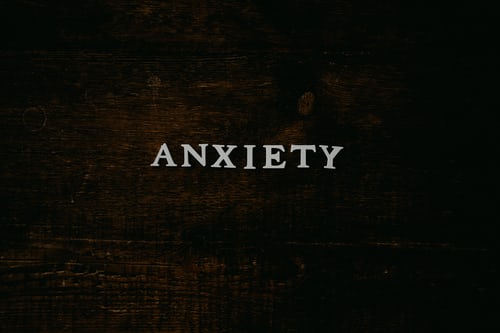
Anxiety Symptoms & Treatments
Anxiety Symptoms
Almost everyone will experience anxious feelings during their lifetime. It’s normal to feel worried or nervous before a big event like a job interview or before taking a driving test. However, some people suffer from continuous anxiety and have anxiety symptoms during everyday life. Living with anxiety can take a huge toll on your personal or professional life and even your physical health.
What is anxiety?
Anxiety describes a natural coping strategy that our bodies use in order to deal with stress. As mentioned above, it’s normal to experience anxiety during periods of uncertainty or big life events such as moving house or starting a new job. However, if your anxiety is occurring often during relatively ‘normal’ periods or is preventing you from fulfilling your daily tasks, then you could be suffering from an anxiety disorder. Individuals that suffer from anxiety will have particular thoughts or triggers that can increase stress and anxiety.

What are anxiety symptoms?
It is important to remember that individuals can experience anxiety symptoms differently from others, however, there are general symptoms that most people experience when suffering from anxiety. These include:
- Constant feeling of worry or dread
- Difficulty concentrating
- Feeling “on edge”
- Being more irritable than usual
- Restlessness or feeling like you can’t sit down and have to stay busy
There are also physical symptoms that can indicate that an individual is suffering from anxiety, such as:
- Noticeably faster or stronger heartbeat, also known as palpitations
- Muscle tension or aching
- Excessive tiredness or fatigue
- Trembling
- Dizziness
- Difficulty falling asleep or disturbed sleep (insomnia)
- Feeling sick or stomach aches
- Excessive sweating
What are the different types of anxiety?
GAD or generalised anxiety disorder is the most common type of anxiety issue that individuals experience, however, other specialised forms of anxiety have different symptoms or triggers.
Generalised anxiety disorder is an “umbrella term” used to describe a standard form of anxiety. It can sometimes be associated with depression, as both of these disorders share similar symptoms. It can be difficult to diagnose a person with GAD, however, you should discuss concerns with your doctor if you feel that your symptoms are disrupting daily activities or interactions in your personal or work life.
There are many other forms of anxiety disorders, including:
- Panic Disorder - This is where an individual suffers from recurring panic attacks. This disorder involves physical symptoms of panic such as chest pains, shortness of breath or palpitations alongside feelings of intense fear. Panic attacks are often unforeseen and can catch individuals off guard.
- Obsessive-Compulsive Disorder (OCD) - Is characterised by recurring, unwanted thoughts and obsessions or repetitive behaviours. These may include hand washing, counting, checking, or cleaning and are often performed with the hope of preventing or stopping obsessive thoughts.
- Post Traumatic Stress Disorder (PTSD) - This anxiety disorder can develop after traumatic or near-death experiences. This disorder is common among individuals who experienced a life-changing event, disaster, accident or served in military combat. Real-life or everyday experiences can trigger an individual into re-living specific events at any time.
- Phobia - This is an anxiety disorder where an individual has an irrational fear of an object, activity or situation. There are many different phobias, such as claustrophobia which is a fear of small spaces or hemophobia, a fear of blood.
- Social Anxiety Disorder - This is a fear of social situations and being judged or not liked by your peers. This disorder can cause individuals to shut off from family and friends in a way to avoid social interactions.
What causes Anxiety?
There is no definitive cause for anxiety, however, it is widely believed by medical experts that there are genetic factors that can increase the chances of suffering from an anxiety disorder. The environment an individual lives in can also play a huge role in contributing to anxiety.
Individuals suffering from illness can also develop an anxiety disorder. Stressful situations or life events can also trigger anxiety. Drug or alcohol abuse can also trigger anxiety disorders.
When should you see a doctor about anxiety?
As mentioned earlier, certain life events can trigger periods of anxiety. For many people, this is a normal process and can be managed successfully without intervention from a medical professional. Often, stressful periods are only temporary and people can deal with mild symptoms until they settle.
However, some individuals struggle to manage anxiety symptoms and find it hard to live their life or complete normal tasks. You should contact your doctor if you feel like your anxiety is disrupting your relationships or work performance, or if you feel like it’s causing you to be unhappy or feel unwell.
What treatments are available for anxiety?
If you’ve discussed your symptoms with your doctor or healthcare professional, they may diagnose you with an anxiety disorder. If they feel that it will be beneficial to you, they will prescribe a suitable treatment plan. There are a variety of medications that are available for different anxiety disorders. Medication is normally prescribed alongside a form of therapy to get the best results from the treatment.
It is important to note that there is no cure for anxiety, however, medication and therapy can help individuals to cope better with symptoms and manage their triggers more effectively.
Therapy treatments such as CBT (cognitive behavioural therapy) is a common form of therapy for anxiety disorders. This form of treatment encourages the individual to identify their triggers and work towards being able to manage their symptoms effectively. Your doctor will monitor your progress regularly with both your medication and therapy treatment and may adjust dosages or the type of therapy to suit your needs.
What are anxiety tablets?
There is a range of anxiety tablets available to treat the symptoms of anxiety. Depending on the symptoms an individual struggles with will determine the type of medication a doctor will prescribe.
Propranolol for anxiety is a prescription medication available from Pharmacy Online. This particular medication can help to reduce physical side effects from certain anxiety disorders. This type of anxiety tablet is known as a beta-blocker and works by preventing certain effects from anxiety such as tremors or shaking, increased heart rates, flushing or dizziness.

It is very important to discuss this medication with your doctor and to take the correct amount prescribed as this type of anxiety tablet lowers blood sugar levels and can cause heart problems if taken incorrectly.
There are other forms of medication that can be used to treat the symptoms of anxiety. Discussing your symptoms with your doctor will help them to decide the right course of treatment for you.
SSRIs (Selective Serotonin Reuptake Inhibitors) are another common anxiety medication. These anxiety tablets are also known as antidepressants and work by increasing the serotonin levels within the brain. Types of SSRIs that are often prescribed for anxiety include:
- Sertraline
- Escitalopram
- Paroxetine
SNRIs (Serotonin and noradrenaline Reuptake Inhibitors) are another anti-anxiety medication that is usually prescribed if SSRIs haven’t been successful. SNRIs increase both serotonin and noradrenaline levels within the brain. Forms of SSRIs can work well as anxiety tablets, these include:
- Venlafaxine
- Duloxetine
If these anxiety treatments don’t reach the desired effects, then your doctor may offer alternative medications. These may be:
Pregabalin: This is an anti-epilepsy medication that is also effective in treating anxiety.
Benzodiazepines: These are a type of sedative medication used to relieve extreme periods of anxiety. This medication is very addictive and will usually only be prescribed for short periods of time.
At Pharmacy Online, we provide suitable and effective treatments for all types of medical conditions. If an anxiety disorder is disrupting your life and you’re finding it difficult to cope with, there is help available.
Contact Pharmacy Online today to access support and advice about anxiety tablets. Speak to your doctor about what treatments are available to you if you suffer from anxiety symptoms.






